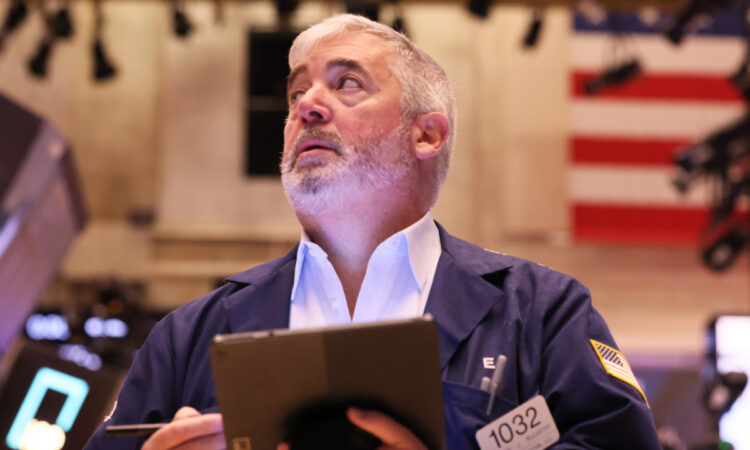
US stocks were mixed on Tuesday after a pullback from all-time highs, with retail earnings on tap to occupy investors counting down to a crucial inflation report.
The Dow Jones Industrial Average (^DJI) fell about 0.3%, while the S&P 500 (^GSPC) was little changed in the wake of a retreat from record levels. Tech stocks were more upbeat, with a rise of 0.2% for the Nasdaq Composite (^IXIC).
Stocks have lost momentum as investors regroup after the tumultuous run-up last week and as focus sharpens on the health of the US economy. Looming over investors is the PCE index report due Thursday, a key inflation input into the Federal Reserve’s rate-setting decisions.
Read more: What the Fed rate decision means for bank accounts, CDs, loans, and credit cards
Given the market’s preoccupation with the timing of a rate cut, the PCE print is seen as a potential catalyst for stocks to move in either direction. In the meantime, consumers appear less confident about the US economy.
The Conference Board’s Consumer Confidence Index for February came in at a reading of 106.7, down from a revised 110.9 in January. January’s preliminary reading was 114, a two-year high for the measure. Economists surveyed by Bloomberg had expected a reading of 115 for February.
Investors digested other economic updates on Tuesday, including another rise in home prices and the largest drop in US durable goods orders in four years.
By contrast, the price of bitcoin (BTC-USD) soared to two-year highs, briefly breaking above $57,000 per token, with gains buoyed by a big investment from MicroStrategy (MSTR). Shares of bitcoin miners and crypto exchanges such as Coinbase (COIN) rose alongside the leading digital currency.
Early morning earnings reports from major retailers provided a window into how the consumer is faring. Macy’s (M) shares slipped as it revealed plans to shutter 150 stores in a turnaround bid and reported another quarter of sales. Lowe’s (LOW) downbeat 2024 sales and profit outlook weighed on the home improvement chain’s stock.
Live6 updates






